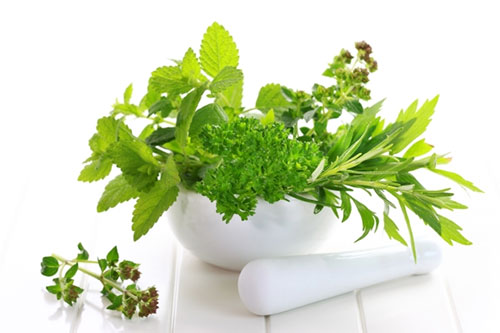Basil is a healthy, minty treat – especially for those looking to cut back on their cholesterol levels
High cholesterol and oxidative stress are primary contributors to many heart problems, including atherosclerosis. In addition to adhering to a healthy diet and exercising regularly, another thing you can do to keep your cholesterol levels at bay is to consume cholesterol-lowering medicinal plants. In a new study, researchers from Morocco suggest basil (Ocimum basilicum), which has been found to help lower high cholesterol levels and prevent atherosclerosis.

Basil is an aromatic plant widely used as a culinary herb, condiment, or spice. In the east of Morocco, it is also used as a medicinal plant to treat health problems like high cholesterol levels and atherosclerosis.
For the study, the Moroccan researchers looked at the effect of basil extract on high cholesterol levels and oxidative stress using an animal model. To do this, they first induced hyperlipidemia in mice. Then, they orally gave them 200 milligrams per kilogram (mg/kg) body weight of basil extract.
The results showed that oral administration of basil extract led to significant reductions in total cholesterol levels, triglycerides, and low-density lipoprotein (LDL) cholesterol. In addition, the extract prevented blood lipid oxidation.
Basil is a healthy, minty treat – especially for those looking to cut back on their cholesterol levels
High cholesterol and oxidative stress are primary contributors to many heart problems, including atherosclerosis. In addition to adhering to a healthy diet and exercising regularly, another thing you can do to keep your cholesterol levels at bay is to consume cholesterol-lowering herbs. In a new study, researchers from Morocco suggest basil (Ocimum basilicum), which has been found to help lower high cholesterol levels and prevent atherosclerosis.
Basil is an aromatic plant widely used as a culinary herb, condiment, or spice. In the east of Morocco, it is also used as a medicinal plant to treat health problems like high cholesterol levels and atherosclerosis.
For the study, the Moroccan researchers looked at the effect of basil extract on high cholesterol levels and oxidative stress using an animal model. To do this, they first induced hyperlipidemia in mice. Then, they orally gave them 200 milligrams per kilogram (mg/kg) body weight of basil extract.
The results showed that oral administration of basil extract led to significant reductions in total cholesterol levels, triglycerides, and low-density lipoprotein (LDL) cholesterol. In addition, the extract prevented blood lipid oxidation. High cholesterol and triglyceride levels and LDL oxidation can contribute to the development of atherosclerosis.
The researchers also discovered that basil extract contains four major phenolics, including cafeic acid, caftaric acid, chicoric acid, and rosmarinic acid. Rosmarinic acid was identified to be the major compound in the extract and may be responsible for the extract’s lipid-lowering and antioxidant activities.
From these findings, the researchers concluded that sweet basil has lipid-lowering and antioxidant effects and that it can be used to lower high cholesterol levels and prevent atherosclerosis. The findings of the study were published in the journal Food Science and Human Wellness.
If you’re looking to include basil in your diet, you can add it in sandwiches and salads, make basil macerate, or even make pesto out of it.
Other herbs that help lower cholesterol levels
Listed below are powerful herbs that support healthy cholesterol levels and keep your heart healthy.
• Astragalus: Astragalus is an herb used in combination with others to ward off diseases for centuries in Chinese medicine. It is primarily used for immune system support, but it also acts as an adaptogen, which keeps the heart healthy. It can be used to improve cholesterol levels and support the overall functioning of the heart, especially in people with heart problems.
• Flaxseed: Flaxseed and flaxseed oil, both of which come from the flax plant, are rich in alpha-linolenic acid (ALA). ALA is an omega-3 fatty acid that may help lower cholesterol levels and prevent heart disease.
• Garlic: Garlic is widely used for cooking and medicine. Studies have shown that garlic may help reduce the levels of blood pressure and blood cholesterol, as well as slow the progress of atherosclerosis.
• Hawthorn: Hawthorn is an ancient medicine that has been used all over the world, including China, Europe, and the Americas. Its berries, leaves, and flowers are have been used for improving health, including heart health. This medicinal plant also has the same antioxidant properties as astragalus, which help support the functioning of the cardiovascular system. According to studies, it can help regulate levels of total cholesterol, LDL cholesterol, and triglycerides.
yogaesoteric
December 16, 2019
